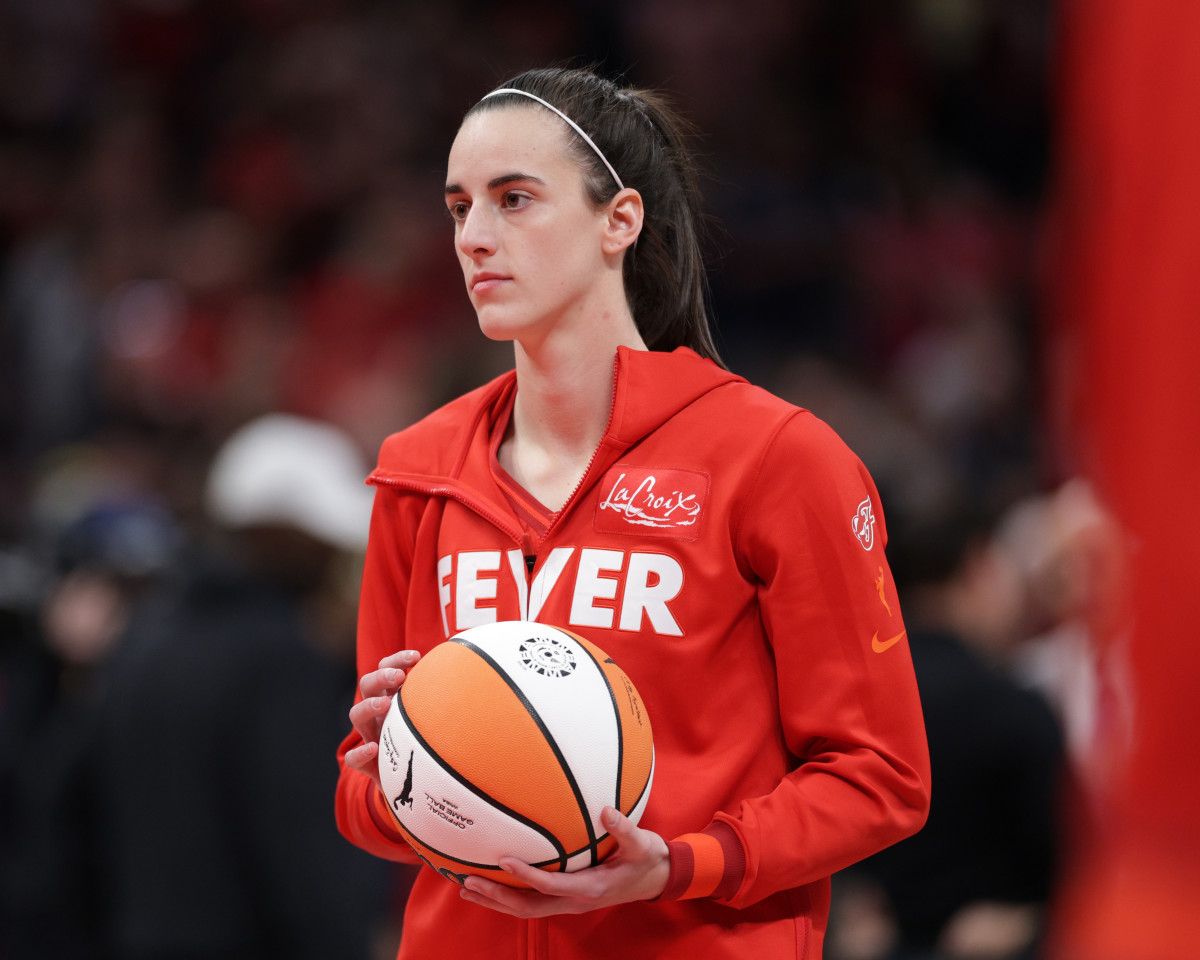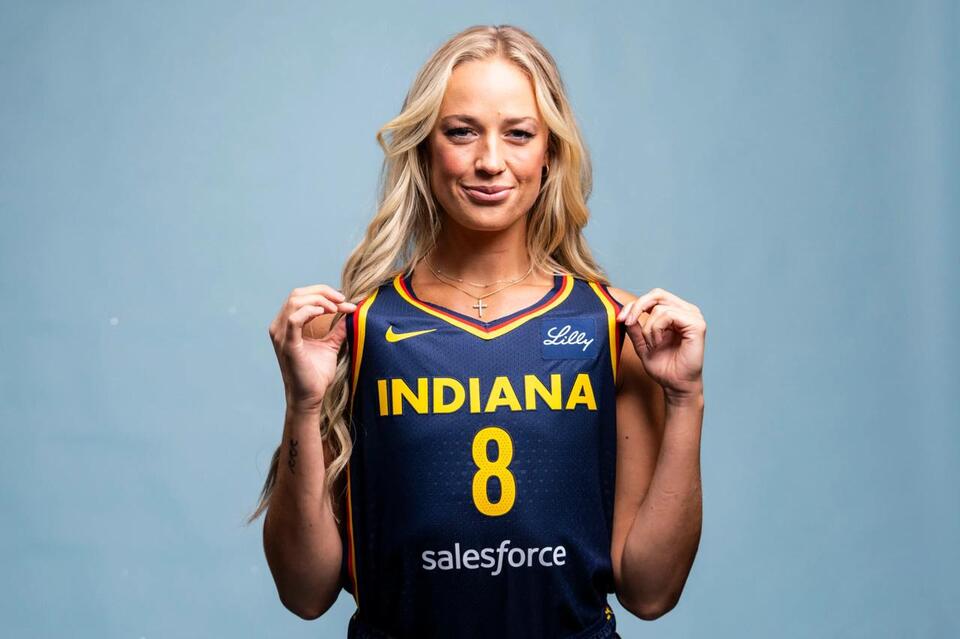1 MIN AGO: Sophie Cunningham & Lexy Hull Make HEARTBREAKING Announcement On Caitlin Clark
In a turn of events that has reverberated across the WNBA and the broader world of women’s sports, Phoenix Mercury’s Sophie Cunningham and Indiana Fever’s Lexy Hull joined forces today to deliver a stunning announcement directly related to rookie phenom Caitlin Clark. The statement, packed with emotion and candor, has elicited a groundswell of reaction—ranging from admiration and empathy to concern and shock—from teammates, fans, and sports commentators alike.

Shining the Spotlight on Caitlin Clark
Caitlin Clark, the 2024 number-one draft pick and NCAA’s all-time leading scorer, entered the WNBA with unprecedented hype. Her arrival signaled not just a new era for the Indiana Fever but a mainstream moment for women’s basketball, with ticket sales soaring, broadcast viewership reaching record highs, and Clark herself becoming a household name.
But with enormous fame comes a crushing weight of expectation. For every highlight-reel three-pointer or game-winning assist, Clark has also been forced to navigate the glare of the spotlight, fierce on-court competition, and—most insidiously—a barrage of criticism ranging from the routine to the deeply personal.
The Announcement: Cunningham & Hull Speak Out
This afternoon, Sophie Cunningham and Lexy Hull released a joint statement addressing what they described as “the immense and unfair pressure” placed upon Caitlin Clark—pressure, they say, that no athlete, let alone a rookie, should be expected to bear alone.
“We have witnessed the incredible talent and work ethic Caitlin brings to the game every single day,” the statement read. “But we have also seen how much she is asked to carry—the expectations, the scrutiny, the noise. The conversations around Caitlin have sometimes crossed a line, threatening the very love of the game that brought us all here.”
Sophie Cunningham, a vocal leader known for her relentless hustle, added: “This is not just about basketball. We talk so much about growth and exposure for women’s sports, but we have to start caring for our athletes as humans first. Caitlin deserves our respect, our support, and, most importantly, the space to be herself—both on and off the court.”
Lexy Hull, Clark’s teammate in Indiana and a rising star in her own right, echoed Cunningham’s sentiment: “As teammates, competitors, and friends, we cannot stay silent. We hope our words foster a broader conversation about empathy and responsibility in the sports world.”

Behind the Headlines: The Real Cost of Stardom
Sources close to the Fever locker room describe an atmosphere both electric and tense. Clark has shouldered not just the playmaking duties of a franchise savior but the psychological strains rarely discussed on highlight reels—critical social media campaigns, pundit hot-takes dissecting her every move, and, at times, targeted physical play from opponents eager to test the new “face of the league.”
Sophie Cunningham—known for her on-court grit—recently shared in a podcast appearance, “What people see are Caitlin’s deep threes and flashy passes, but what they don’t see is the exhausting pressure that hits when the cameras shut off.”
Hull pointed to a larger issue. “We’re proud the league is growing, but growth without compassion isn’t the kind of progress we want. We need to be role models not just as athletes, but as people.”
Social Media & The Culture of Critique
Perhaps most pointedly, Cunningham and Hull’s statement called out the role of social media in magnifying negativity. Clark, who rose to fame partly through viral highlight clips, has experienced a double-edged sword—her every accomplishment dissected, but also every perceived misstep blown out of proportion.
Hull recounted, “We’ve seen Clark trend not just for her skills, but for things as trivial as a bad shooting night or an emotional response in a postgame interview. That kind of hyper-scrutiny isn’t healthy for anyone.”
The statement called on fans, media, and, most importantly, fellow athletes, to “be part of the solution, not the problem. Celebrate, uplift, critique constructively, but remember the person underneath the jersey.”
A WNBA at a Crossroads
The Cunningham-Hull announcement comes at a defining moment for the WNBA. The league’s explosion in popularity has brought new resources and opportunities, but also new pitfalls. Clark, by merit of her talent and charisma, is shouldering much of that transition. For teammates—and now, opponents like Cunningham—the situation is a clarion call for change.
Former WNBA MVPs have weighed in, as well. Tamika Catchings tweeted her support: “I feel what Sophie and Lexy are saying. Every new era brings its challenges—let’s make sure we don’t repeat the mistakes of the past.”
Moving Forward: Calls for Support & Change
Following Cunningham and Hull’s message, the Indiana Fever released a statement backing both Clark and the principles outlined in the announcement. Team President Allison Barber emphasized, “Our priority is nurturing an environment where every player can thrive—mentally, physically, and emotionally.”
There are now growing calls for league-wide initiatives:
Player Mental Health Initiatives: Expanding access to sports psychologists and confidential resources for all WNBA players.
Media Literacy Training: Helping young athletes manage the media frenzy that now accompanies superstardom.
Fan Code of Conduct Campaigns: Educating fans about online harassment and the importance of civility.
Caitlin Clark Responds with Grace
For her part, Caitlin Clark responded in a post-practice interview, voice steady but eyes reflective: “I’m grateful to Sophie and Lexy for their words and their support. At the end of the day, I play this game because I love it. My hope is we lift each other up, even when things get tough. That’s what this league is all about.”
The Heartbeat of a League
The Cunningham-Hull announcement, heartbreakingly raw and deeply necessary, is more than a commentary on a single player—it’s a challenge to all of us to consider the kind of sports culture we’re building. Caitlin Clark’s journey will inspire a generation, but what truly defines this era is how we support the athletes—superstar and rookie alike—who bring these stories to life.
As Clark, Cunningham, Hull, and the WNBA write the next chapter, may it be marked not just by buzzer-beaters and broken records, but by empathy, respect, and hope.
